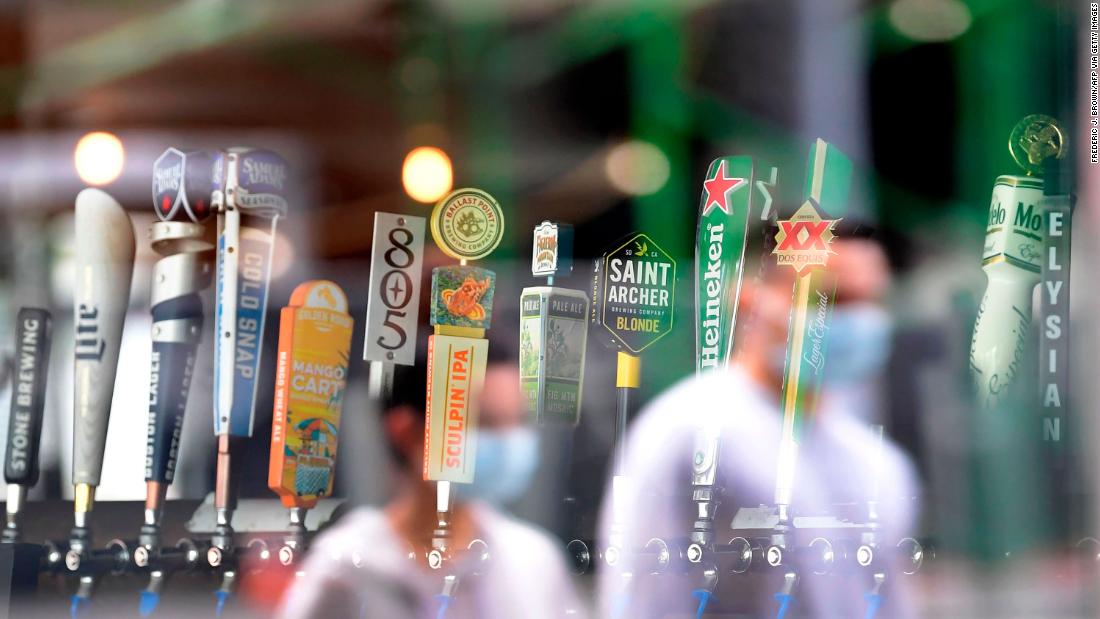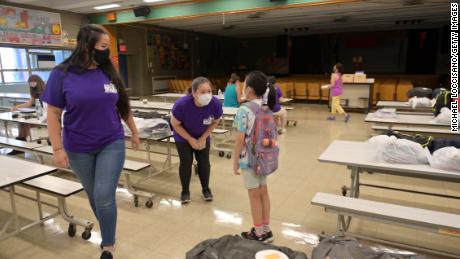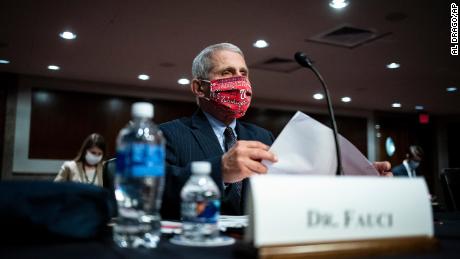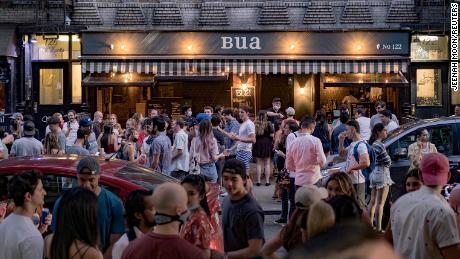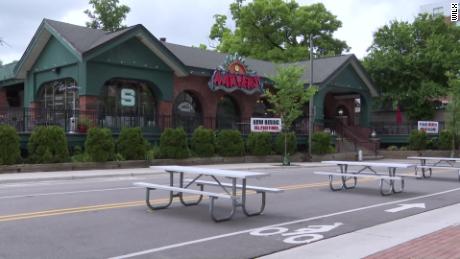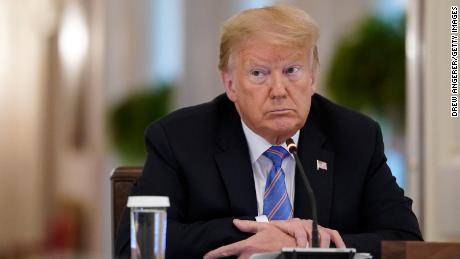A total of 22 states have changed or paused reopening plans due to spikes in coronavirus cases, and bars are under particular attention
Wednesday’s total eclipses the previous high of new cases reached on June 26, when 45,255 new coronavirus cases were reported across the US.
It took a little more than two months for the US to record its first 46,000 cases, the university’s data says.
There have been 2,682,270 cases of coronavirus in the country, according to Johns Hopkins University. More than 127,000 people have died.
The spike comes as many states are pausing their reopenings or rolling back some restrictions.
The closures affect 19 counties representing 72% of the state’s population, and include restaurants, museums, zoos, movie theaters, family entertainment, and card rooms, Gov. Gavin Newsom said Wednesday.
The governor’s announcement included bars, pubs, breweries and wineries that don’t also serve food. Restaurants can serve takeout meals.
“Bottom line is, the spread of this virus continues at a rate that is particularly concerning,” said Newsom, who added that the percentage of people who test positive is rising.
These restrictions will remain in place for at least three weeks, Newsom said.
Newsom said California’s state beaches in areas where local governments have closed theirs will also be closed. Parking lots at state beaches that are open in Southern California and the Bay Area won’t be operating.
California isn’t the only state that announced new restrictions. Michigan is closing indoor service at bars throughout most of the lower part of the state. Governors in Pennsylvania and Oregon ordered their citizens to wear face coverings.
Weekend could be a ‘perfect storm’
As the Fourth of July weekend nears, an infectious disease doctor said the United States could be heading into “the perfect storm” for a spike in coronavirus cases.
“It’s set up a perfect storm: the combination of travel, the combination of reopening — perhaps in some cases, too early — and the combination of people not necessarily following some of these preventive guidelines,” Dr. Joshua Barocas, an infectious disease physician at Boston Medical Center, said during a Wednesday briefing by the Infectious Diseases Society of America.
At least five states — Arizona, California, North Carolina, Tennessee, Texas — had record-high totals of new case reports on Wednesday.
Barocas said cases spiked in some states after Memorial Day. Thirty-seven states now trend upward in the number of cases from last week and only two states, New Jersey and Rhode Island, trend downward.
“I’m very concerned, especially given this coming weekend, that the same types of spikes, the same types of surges could be seen — not just in the places that are currently experiencing surges, but in places that have already experienced surges and in ones that haven’t yet,” he said.
Dr. Ricardo Franco, assistant professor of medicine at the University of Alabama at Birmingham, said, “this surge in our prolonged first wave of infections, it’s very difficult to predict what might happen and the Fourth of July weekend could play a big role in this.”
Other states order bars to shut down
Some states with hotspots are taking action in an attempt to reduce crowds by shutting down bars, closing beaches and canceling fireworks displays.
A total of 22 states have changed or paused reopening plans because of spikes in coronavirus cases, and bars have come in for particular attention.
“If you have bars, you have music,” said Franco. “If you have music, you want to socialize. And you want to speak louder than usual so you can overcome the background noise.”
All those factors can increase the spread of the virus, he said.
Texas, Colorado and Delaware have ordered closures or limits on bar operations.
Dr. Anthony Fauci, the director of the National Institute for Allergy and Infectious Diseases, also gave bars nothing to cheer when he appeared before Congress this week.
“Bars: really not good, really not good. Congregation at a bar, inside, is bad news. We really have got to stop that,” Fauci said Tuesday.
In hard-hit South Florida, beaches from Palm Beach to Key West will be shut down for the holiday weekend.
One hopeful note from another corner of the country: New York City beaches have opened for swimming.
Fauci says early mask messages were confusing
The “mixed message” about wearing a mask at the beginning of the coronavirus pandemic in the US has contributed to the reluctance of some Americans to wear a face covering now, Fauci told NPR on Wednesday.
Americans who didn’t have coronavirus symptoms were told not to wear a mask February and March as a shortage of personal protective gear for medical workers worsened.
By May, health experts, including Fauci, changed their guidance and urged all people to wear masks in public to prevent the spread of the virus.
“I think that did have an effect,” Fauci, head of the National Institute of Allergy and Infectious Diseases, told NPR.
Fauci admitted that the early message to Americans about wearing a mask was “confusing.” Without elaborating, he said there were “many other things” now contributing to why people do not want to wear a face covering.
“We have to admit it that mixed message in the beginning, even though it was well meant, to allow masks to be available to help workers, that was detrimental in getting the message across right now,” Fauci said. “No doubt about it.”
CNN’s Shelby Lin Erdman, Keith Allen, Madeline Holcombe, Jamie Gumbrecht, Vivian Kuo, Andrea Kane, and Evan Simko-Bednarski contributed to this report.
![]()


